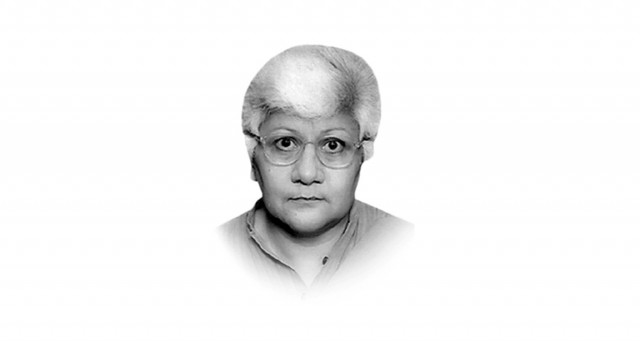The verdict of history
This is a historic chance for the Supreme Court to remove the stain of collusion with dictatorship from its past.

The verdict of history
The initiative by the president has also stimulated legal wrangles with lawyers on both sides presenting competing arguments. Those opposed to the re-opening of the case argue that the eighth constitutional amendment protects all actions, ordinances, regulations and orders of General Ziaul Haq through the insertion of Article 270-A in the Constitution. Others maintain that the case does not fulfil the criteria of general public interest therefore, Article 186 cannot be invoked. Still others assert that since the case has already passed through all the stages of review, it cannot be reopened.
Those in support of the reference believe that the case was a political one; as a military dictator, eager to retain and reinforce his hold on power, manoeuvred and manipulated the proceedings and conduct of the case to twist the verdict in his favour and ensure the murder of a political foe. They quote Justice (retd) Nasim Hasan Shah’s belated admission that there was coercion to produce a particular kind of verdict. Furthermore, it is pointed out that initially there was a split verdict with only four judges convicting the accused and three favouring acquittal. This was later changed and a unanimous verdict was ensured through highly questionable means. It is generally held in the legal community that a death sentence cannot be given on a split verdict, more so when the split reflected ethnic differences. The supporters of the presidential reference also note the animosity that Maulvi Mushtaq had for the accused as a result of which bias cannot be ruled out.
Whatever opinion the honourable court and judge’s hold on the matter, will become apparent in time. Nevertheless, history has already given a verdict, one that indicts Haq and acquits Bhutto. The machinations of an illegal ruler, threatened by the popularity of his opponent, are by now well recorded. Bhutto’s death is widely regarded as judicial murder even by his detractors and political rivals. History judges people on the basis of criteria different from the technical legalities of a court. History judges people based on their actions and the results of these actions.
In the judgment of history, Ziaul Haq was a usurper, an illegal absolute dictator who played havoc with national institutions and destroyed the fabric of society by introducing extremism, war, bloodshed and terrorism. He decimated the judiciary, distorted the educational curricula and destroyed the media. He eliminated all norms of decency and mutual tolerance in society and planted the seeds of hatred, violence and sectarian strife. He eradicated the notions of human rights, women’s rights and rights of religious minorities. He watered the poisoned tree, the fruits of which we still endure.
In the judgment of history, Bhutto gave Pakistan a consensus Constitution, supported the rights of women when the First Lady attended the First World Conference on Women in Mexico in 1975 and gave the underdog political consciousness to demand his rights. Despite some of his failings with regard to the rights of Ahmadis, his controversial role in the events of 1971 — that led to the separation of East Pakistan, and his feudal background, there is no doubt that he was among the greatest leaders that Pakistan produced. Millions of peasants, workers, members of minority communities and the poor still remember the charismatic man who taught them about equality, rights and justice.
In its judgment of July 31, 2009, declaring the November 3, 2007 actions of General Pervez Musharraf (retd) illegal, the Supreme Court made a number of important observations. The honourable court spoke of how the ‘notorious’ eighth amendment mutilated the Constitution. It is sad that in spite of even the Supreme Court deploring the eighth amendment; it was not deleted by the legislators. Regarding the manipulation of the courts, the Supreme Court observes that, “Through various instruments, the favourites and pliant members of superior judiciary were out rightly given undeserved benefits while the others were shown the doors. This happened during the era of the then Martial Law Administrator General Ziaul Haq and following the same footsteps, General Musharraf (retd) did the same in the year 2000.” This is an indictment of the regime and its judicial manoeuvres by the Supreme Court itself.
Commenting on the historic judgment of July 31, 2009, the Chief Justice of Pakistan referred to a report by The Economist which declared the judgment, “As a triumph of democratic principles and a stinging negation of the dictatorship. It is the first instance of the Supreme Court stating in a categorical, loud and abundantly clear manner that military interventions are illegal and will hardly find any colluder in future, within the judiciary.”
In the long and historical struggle between the ballots of democracy and the bullets of dictatorship, the Supreme Court as the defender and protector of the Constitution must side with democracy, a principle that has been upheld in the July 2009 judgment. This is a historic chance for the Supreme Court to uphold its independence and remove the stain of collusion with dictatorship from its past. What learned opinion is delivered by the honourable court remains to be seen. History, however, has given its verdict. And in this verdict Bhutto remains a man who laid down his life in his fight against dictatorship.
Published in The Express Tribune, April 13th, 2011.















COMMENTS
Comments are moderated and generally will be posted if they are on-topic and not abusive.
For more information, please see our Comments FAQ